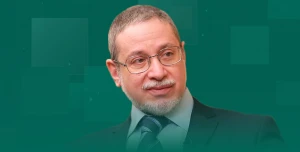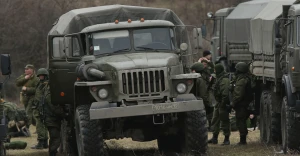
DPRK engineering brigades may be sent to Donbas next month: what does Russia promise instead? Serhiy Zgurets' column
Russia is trying to use its manpower advantage, recruiting about 30,000 personnel every month and using material incentives to sign contracts
The DPRK's assistance to Russia
Yesterday, information emerged that is obtaining new details. In particular, that it is possible that North Korean troops may be relocated to Donbas to provide engineering support to Russian troops. This was reported by a South Korean television company. It is said that the relocation may take place as early as next month. The DPRK has about eight or nine engineering brigades. For this, North Korea is going to receive about $115 million annually, according to press reports. So far, this is just an assumption. Although it is true that Russia receives ammunition and missiles from the DPRK. And now there is also a bet on getting manpower. In order for this component of Russia to be leveled, Ukraine needs to scale up its means of striking and technological approaches to be able to counter any force.
How MiG-29 used AASM Hammer against Russia
A video has been released showing how a MiG-29 fighter jet accurately uses French AASM Hammer precision long-range bombs against the Russian enemy, the delivery of which was officially announced in January 2024.
The video shows the pilot flying at a low altitude, then going up, launching the Hammer and quickly performing an anti-missile maneuver to avoid detection by Russian radar and a possible strike by Russian air defense systems.
The long-range weapon has a range of 70 kilometers - it is actually a hybrid of a bomb and a missile, which is attached to a guidance system and a rocket engine that is supposed to provide such a range. In reality, the range is much less. Pilots are forced to operate from low altitudes to avoid detection and strikes by Russian systems, including the S-400.
There were tragic cases when Russia shot down Ukrainian aircraft at a range of 200 kilometers. That is why such tactics are used with French weapons. The same tactics will be used with Ukrainian guided bombs, which have been developed by the Air Force Command. F-16s, which we have been waiting for for so long, will also have to conduct complex tactical approaches to remain undetected. This will affect the effectiveness of foreign weapons use in terms of range.
There is only one countermeasure: strikes on Russian facilities, air defense systems, using foreign weapons, such as Atacms, at a range of up to 300 km. Expanding strikes deep into Russian territory is the main element for destroying the Russian air defense system and enabling Ukrainian aviation to operate with the full potential of the technical characteristics of long-range weapons available in the models supplied by Ukraine's partners.
Technological solutions for Ukraine's Armed Forces
Pavlo Kyshkar, Lieutenant Colonel, Senior Officer of the Ukrainian Land Forces Command, Head of the Project Office of the Defense Ministry Accelerator, said what technological approaches and solutions are currently being adopted by the Defense Ministry and the General Staff of the Armed Forces.
"There are two main areas - unmanned aircraft and foreign automated systems. There are separate projects to automate troop command and control and battle management. Given the number of developments and industrial production that is currently being carried out in Ukraine, we are the world leader in these three areas. By supporting its own production, Ukraine will be able to maintain this trend to remain number one in both unmanned aerial vehicles and ground components, and to develop automated command and control systems for troops," he said.
According to the lieutenant colonel, the Ministry and the General Staff are now working well together. There is a working contact with every unit commander who is directly involved in combat operations. This horizontal communication is a fundamental difference between Ukraine and Russia: "That's why we are constantly in touch, 24/7, so that the latest developments and robots fight instead of people, given that the Russian army outnumbers Ukraine’s. The quality of training and technology should have an advantage on the battlefield over any number of occupiers who come to Ukraine."
Robotic platforms at the front
Today, Ukraine is working to ensure that the technological capabilities of the Armed Forces provide protection for the front line, Kyshkar says: "We are moving towards this quite confidently. But we need to communicate with the people who will be the operators of these systems. Given our shortcomings in mobilization and the fact that we have created an image of rejection of people, we will scare those who would like to be operators of these systems tomorrow. We have developed and tested the systems. We even have a whole newly created command for unmanned systems, which will gain capabilities in the form of newly created units. Accordingly, there will be modern technology there, and we will directly invite people who are able and willing to test their abilities directly on the battlefield. The Armed Forces have such an offer."
Mobilization and trust in the Armed Forces
In general, restoring trust in the Armed Forces and its commanders requires a perfect solution. The state has done everything to scare people. The head of the Defense Ministry's Accelerator project office says that they are currently working on this and explaining to the ministry and the command responsible for mobilization that this is not necessary.
"We have two subjects - the state and society. It is difficult to communicate with society. It is much easier to teach the state to communicate and regain trust, because it is a much narrower circle of people. Therefore, the state must invite people who want to serve, invite them directly to the commanders with whom they agree to serve, directly, and write it down in regulations. The state must define and give a signal to those people who have gone abroad: "Come back, here is an offer so that you can legally return, do your service, leave and visit your family in Europe, from Europe." This offer should be open," Kyshkar said.
According to him, booking for business should be simplified today. It should be in electronic form and should take no more than 10 minutes of business time. Booking should be done immediately. Later, if the state does not agree with this reservation, it should take measures to cancel it.
The state should also start with itself, by reducing its non-working and unnecessary bodies during the war, and liquidating local governments in the occupied territories, the lieutenant colonel added: "These people can be redirected to other areas of state work. I think these four steps could stimulate the return of trust between Ukrainian society and the state and vice versa. The state could trust its citizens. Moreover, most people are ready to do military service. People just need to have certainty. They have the right to choose a unit, they have the right to training and appropriate preparation. A man has the right to understand when he will return from this war to his family. If this is communicated, people would easily agree to join and support the army."
Little has changed in the state system of governance, in the system of conscription and troop management. Often, a system of mobilization governs the life of the state in general - it determines which businesses survive, which die, who goes to the army, who does not.
"This cannot be that way. There should be a common state policy. Perhaps the president should intervene, appoint a responsible person - one person authorized by the president to somehow modernize the mobilization process, make it more human, and establish feedback communication between the state and society," Kyshkar believes.
Analysis of Russian experience at the front
Several structures are analyzing the Russian experience, not only the Ministry of Defense and the Armed Forces, but also other military formations, Kyshkar says.
"The analysis of the combat use of Russian developments is underway. The reform of the units in the Ministry of Defense, in the General Staff, which are responsible for IT classes, for the cluster of unmanned systems, for the cluster of ground automated systems, automated troop management systems, will only improve. To a greater extent, this concerns the reduction of certain units that do not have applied developments. People with the relevant knowledge, skills and abilities will not get lost. They will be redirected to other areas of development, implementation and combat use of modern weapons," he said.
- News













































